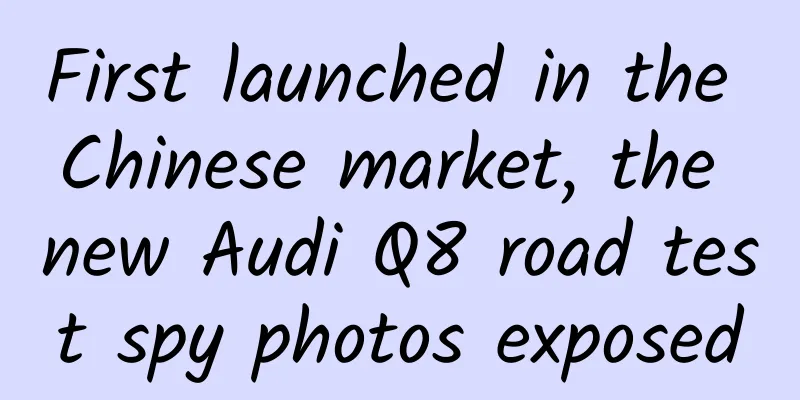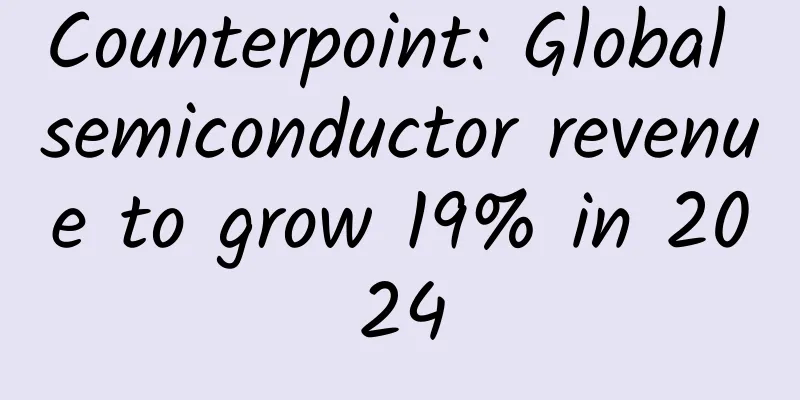Is there an end to Alibaba’s traffic auction model?

|
Countless people admire the rise of this business empire, and countless people have begun to think about how it will evolve in the future. After all, Alibaba wants to be a 102-year-old company. Although it ranks No. 1 in the industry in China, it is inevitable that there will be controversy about being at the top, and the industry has higher expectations for it. Especially in the form of a gradual slowdown in revenue growth in the past three years, as can be seen in its public financial reports, whether it can condescend to listen to the "harsh" voices from all sides and prevent them from happening is the key to avoiding big company disease. The following is an article written by a top operator in the domestic e-commerce industry (name withheld here, referred to as "Deep Throat") who has been engaged in Tmall and Taobao trading for many years. The author attempts to analyze the development trajectory and path of e-commerce platforms led by Alibaba in the future with an alternative approach. Alibaba's core revenue mainly comes from physical goods transactions and advertising. Other revenue is derived from the many services provided by non-physical goods transactions based on this. It is impossible to generate a huge charging base, or it takes too long to develop a large charging base, making it difficult to quantify and quantify, so we will not discuss it here. As we all know, China has a serious overcapacity in physical goods. In just 20 years, China's commercial real estate has developed in a low-level and extensive manner due to various reasons, and has been fishing in a dry pond. In many aspects, Chinese business seems to be constantly overdrawing and only caring about the present, digging deep into the ground and peeling off layers of skin. Based on these two reasons, I think these are the core points that cannot be ignored among the many reasons for Alibaba's success in this era. The physical consumer goods industry has overcapacity, low level of informatization, and a short-term, fast and easy foreign trade model. There are many workshop-style factories and a large enough market. The quality of practitioners is uneven, and the capacity upgrade is not refined across the industry. Competition is cruel and fierce. Since 2005, China's major physical goods manufacturing industry has entered a long process of "de-capacity", with net capital outflows into the real estate and financial industries. If it were not for the sudden rise of the e-commerce industry, the capital path would have benefited the manufacturing industry; if it were not for the omnipotent 4 trillion, the process of de-capacity would not have taken 10 years to reach the current performance. From manufacturing goods needed by the world in the past, to sluggish foreign trade and the conversion of some exports to domestic sales, the domestic retail environment has deteriorated. The painful process of de-capacity has not improved to this day. It is precisely the saturation of offline channels and the high threshold of commercial real estate that have prompted the popularity of e-commerce and increasingly fierce competition. This is caused by the large industrial background. Alibaba rose to prominence in this objective social and industrial context. Undoubtedly, Alibaba is indeed a great company, but it failed to exert its leadership and create a pattern similar to 3 wins, 5 draws and 2 losses. Instead, it actually created a business model of 1 win and 9 losses, a model where “other market participants win or lose, and Alibaba wins steadily.” As for the cost of the losers, Alibaba can completely ignore it morally or commercially. At this point, Alibaba has been firmly tied to the retail consumer goods market of the whole society. Alibaba's rise and fall is positively correlated with an indicator, that is, the retail consumer market of the whole society. Unless Alibaba does something extremely offensive to consumers, it will be completely eliminated by a considerable proportion of consumers. This is not impossible, in fact, it is happening day by day. Consumer stickiness and the proportion of physical consumption of disposable income (excluding life services) under Alibaba are foreseeably falling. Now buying and selling, the user experience defects of effective connection between supply and demand are beginning to emerge. The past "evaluation + DSR + historical transaction record + credit system" has become more and more fierce due to the decline in business on the merchant side. Reasons such as fake orders are well known to consumers, and the cost of consumer trust is getting higher and higher. Even with crazy support, the KA merchants of TOP are still weak in growth. The end of Alibaba's traffic auction model, the end point that cannot be continued, is that the excess capacity of China's low-end retail consumer goods manufacturing is squeezed and eliminated until it is connected with real shopping needs. Or the capacity will be relocated to a large proportion (compared with the previous one, this is a low-probability event. The capacity transfer has historically moved from the Americas and Europe to Asia-Pacific, represented by Taiwan and Hong Kong, and then to mainland China. In reality, only India and Africa have the potential to take on the global manufacturing capacity. Others cannot cause overall waves from a political and economic perspective). By then, low-end manufacturing is not worth investing in, and there is no subsequent investment intervention. The industry's profit margin is more reflected on the brand side. At this time, between relatively matched capacity and demand, traffic auction docking can only obtain corresponding value. Without the drive of overcapacity, there will be no merchants with crazy sales needs to instinctively boost advertising display and click cost bidding. This trend will also be accompanied by the maturity of the industry, a more reasonable industry human resource structure, more symmetrical information, less prone to brainwashing, deception, and fraud, and businesses that protect gross and net profits will vote with their feet and not engage in unnecessary competition, while downplaying the fact that the current advertising pricing power is in the hands of irrational "fertilizers". At the same time, the extreme performance of newcomers, unprofessionals or ignorant people who work as customer service supervisors today and dare to work as operations directors tomorrow will gradually decrease. However, this is not the core point. In other words, no matter how professional the practitioners in the industry are, as long as there is an objective overcapacity, the model of advertising bidding traffic monetization will never be outdated. If Alibaba cannot expand the informatization of advertising and physical commodity transactions and intervene in the depth of broader industrial informatization before the end of overcapacity elimination, then the current peak will be visible, I believe. As a winner of Toutiao's Qingyun Plan and Baijiahao's Bai+ Plan, the 2019 Baidu Digital Author of the Year, the Baijiahao's Most Popular Author in the Technology Field, the 2019 Sogou Technology and Culture Author, and the 2021 Baijiahao Quarterly Influential Creator, he has won many awards, including the 2013 Sohu Best Industry Media Person, the 2015 China New Media Entrepreneurship Competition Beijing Third Place, the 2015 Guangmang Experience Award, the 2015 China New Media Entrepreneurship Competition Finals Third Place, and the 2018 Baidu Dynamic Annual Powerful Celebrity. |
<<: Talking about Alibaba’s private enterprise attributes: an internationalization paradox
Recommend
Four ways of Android multithreading
When we start an App, the Android system will sta...
How to write a valuable competitive product analysis report?
Before writing a competitive product analysis rep...
What is superconductivity? Believe me, you will definitely understand it in this article
Superconductivity is a "star" in the ph...
It was not Sina but WeChat that killed Tencent Weibo
Tencent Weibo has finally met its day of death. O...
Luma Image e-commerce food photography online course, still life beverage food zero-based creative commercial photography teaching
Luma Image e-commerce food photography online cou...
Party Founding Day丨Stay true to your original aspiration and realize your dream! Revisit the original aspirations of old scientists to join the party
There is a group of scientists who have made beco...
Can fish in the water hear people talking on the shore?
When looking for a fishing spot, we always recomm...
Are there wandering planets in the universe? Here's everything that "The Wandering Earth 2" didn't say
The earth itself is not a hard rock. 40-70 kilome...
How to promote the brand?
The biggest difference between a brand and a prod...
How to find the reasons for decreased conversion by splitting “user active status”?
“Why has the conversion rate decreased? I can’t f...
Why doesn't LG, which supplies Xiaomi Note 2, use curved screens itself?
Xiaomi Note 2 is a curved product, and the flexib...
How much does it cost to produce the Kunming beauty mini program? What is the price for being an agent of Kunming Beauty Mini Program?
Kunming beauty mini program agents are generally ...
Why can’t rich people make short videos well? How should a novice do live streaming?
Those who see the development potential of short ...
How to give a mini program a “good name”?
Q: How to give a mini program a “good name”? A: N...
Charging solution that increases community charging capacity by 20 times: distributed shared charging piles
At present, electric vehicle charging piles are m...









